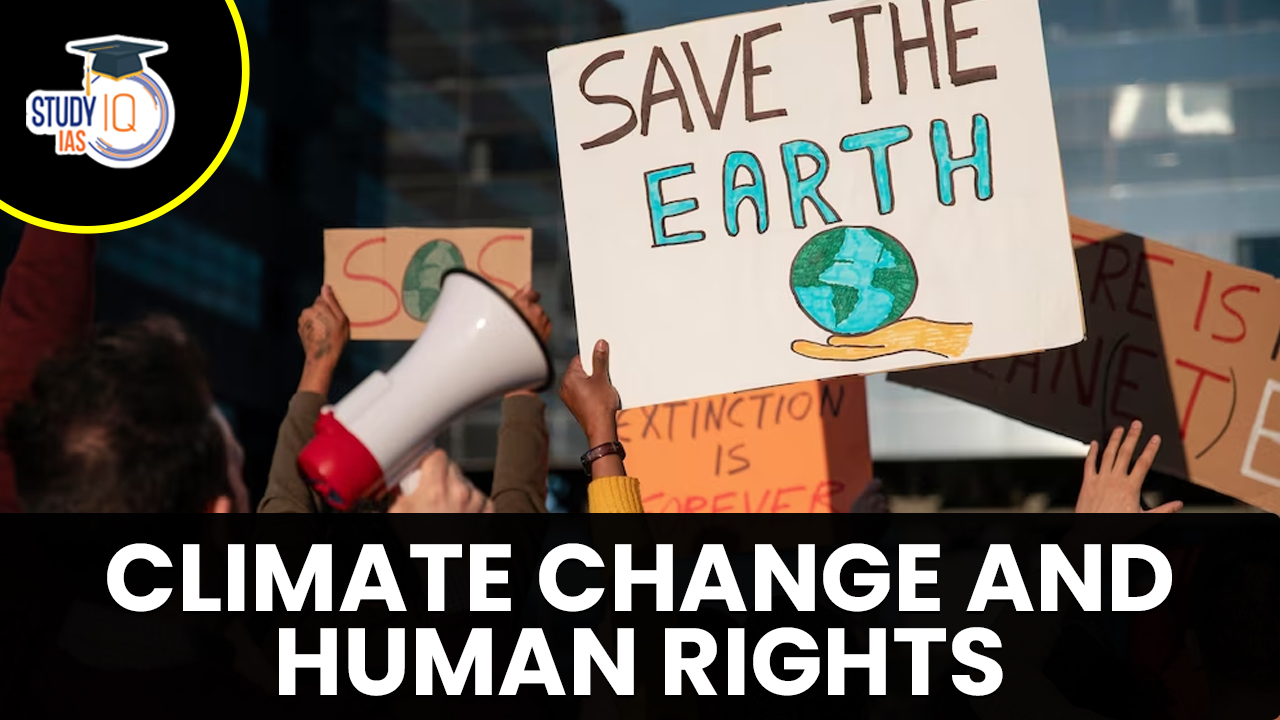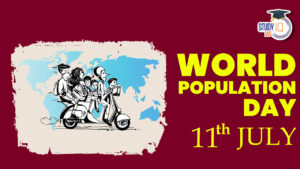Table of Contents
Context: The UN High Commissioner for Human Rights, Volker Turk, stated that climate change is leading to human rights crises in different nations, emphasizing the immediate need for global action to tackle the same.
More on the News
- Environmental Horror: Turk pointed to examples of environmental devastation caused by climate change, such as in Basra, Iraq, where drought, extreme heat, pollution, and water scarcity have turned once-vibrant areas into barren landscapes.
- Dystopian Present: He stressed that the dystopian future that many have feared is already a reality, and there is no time for further warnings. Immediate action is required to combat climate change.
- G-20’s Failure: Turk expressed disappointment that the G-20 did not commit to phasing out fossil fuels, which he viewed as a crucial step in addressing climate change.
- Migrant Deaths: He expressed shock at the rising number of migrant deaths, especially as climate change forces more people to leave their homes.
- He highlighted deaths in various regions, including the English Channel, the Bay of Bengal, the Caribbean, the U.S.-Mexican border, and the Saudi border.
- Ecocide Proposal: He welcomed a proposal to recognize “ecocide” as an international crime.
- Ecocide refers to the extensive damage to, destruction of, or loss of ecosystems in a particular area, often as a result of human activities.
Understanding Climate Change
- Climate change refers to long-term shifts and alterations in the Earth’s climate patterns, including changes in temperature, precipitation, wind patterns, and other aspects of the climate system.
- It is primarily driven by human activities, particularly the burning of fossil fuels (such as coal, oil, and natural gas), deforestation, and industrial processes, which release greenhouse gases (GHGs) into the atmosphere.
- Causes, effects, and feedbacks of climate change (see the image).
Evidences of Climate Change
- Rising Temperatures: The Earth’s average surface temperature has increased by about 1.8°F (1.0°C) since the late 1800s.
- Human-caused greenhouse gas emissions are responsible for the observed warming.
- Rising Sea Levels: Rising temperatures are causing the polar ice caps to melt, leading to a rise in the sea levels.
- According to the NOAA, sea levels have risen by about 21 cm since 1880, with the majority of that rise occurring in the last 25 years.
- Increased Storm Intensity: Due to the rising sea surface temperatures, there has been an increase in the frequency and intensity of storms, resulting in significant damage to lives and property.
- For example, very severe cyclones in the Arabian Sea have increased by 150% and their duration has risen by 260% in the past four decades, as per the Union Ministry of Earth Sciences.
- Droughts and Water Scarcity: Climate change can lead to changes in precipitation patterns, which can lead to droughts and water scarcity in some areas.
- According to the UNFCCC, droughts have affected more than 60% of the global population in the last decade.
- Heatwaves: Climate change can lead to an increase in the frequency and intensity of heatwaves, which can have a major impact on human health, wildlife and ecosystems.
- The WMO states that the frequency of heatwaves has increased by more than 50% in large parts of Europe, Asia and Australia since the 1950s, due to human-induced climate change.
The Human Rights Implications of Climate Change
A report titled “Climate Change and Human Rights” by the United Nations Environment Programme (UNEP) has highlighted the following human rights implications of climate change.
Effects of Climate Change on Human Rights
| Impacts on Ecosystems and Natural Resources | Freshwater Resources |
|
| Terrestrial Ecosystems |
|
|
| Coastal Systems and Low-lying Areas |
|
|
| Ocean Systems |
|
|
| Food Security and Production Systems |
|
|
| Impacts on Physical Infrastructure and Human Settlements | Urban Areas |
|
| Rural Areas |
|
|
| Key Economic Sectors and Services |
|
|
| Impacts on Livelihoods, Health, and Security | Livelihoods and Poverty |
|
| Human Health |
|
|
| Human Security |
|
Effects of Mitigation and Adaptation on Human Rights
| Mitigation | There are numerous examples of how certain kinds of mitigation projects undertaken to reduce or sequester GHG emissions can adversely affect the rights of certain groups.
|
| Adaptation |
|
| Geoengineering |
|


 World Population Day 2025, Themes, Histo...
World Population Day 2025, Themes, Histo...
 What are Polycyclic Aromatic Hydrocarbon...
What are Polycyclic Aromatic Hydrocarbon...
 Marlin Fish: Species, Features, Appearan...
Marlin Fish: Species, Features, Appearan...





















